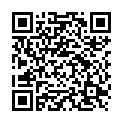|
|
|
| Module code: E2432 |
|
|
1V+2PA (3 hours per week) |
|
4 |
| Semester: 4 or 6 |
| Mandatory course: no |
Language of instruction:
German |
Assessment:
Project with presentation
[updated 21.06.2021]
|
E2432 (P200-0003) Electrical Engineering and Information Technology, Bachelor, ASPO 01.10.2018
, optional course, technical
Suitable for exchange students (learning agreement)
|
45 class hours (= 33.75 clock hours) over a 15-week period.
The total student study time is 120 hours (equivalent to 4 ECTS credits).
There are therefore 86.25 hours available for class preparation and follow-up work and exam preparation.
|
Recommended prerequisites (modules):
None.
|
Recommended as prerequisite for:
|
Module coordinator:
Prof. Dr. Benedikt Faupel |
Lecturer:
B.Eng. Matthias Truar
[updated 10.02.2021]
|
Learning outcomes:
After successfully completing this module, students will be able to describe the structure and functionality of a simulation used in an industrial environment and assign different simulation methods to the corresponding application possibilities.
They will be able to create simple simulations, link them with simulation partners (co-simulations) and validate the results.
[updated 21.06.2021]
|
Module content:
1. Introduction and motivation / History / Market situation / Overview of CAx applications
2. Development steps in engineering / Sequential development steps, Parallel development steps
3. Simulation methods and their applications / Multibody simulation, finite element method, flow simulation / Connecting simulation partners / Hardware in the loop, Software in the loop
4. Accuracy and degree of simulation / Comparing the benefits and costs/efforts
5. Introduction to NX MCD / Differentiating between the program areas CAD, CAE and CAM
6. Creating a mechatronic concept with the help of NX MCD and external CAD models
7. Coupling of various simulation partners / PLCSIM Advanced, SIMIT
8. Project work
[updated 21.06.2021]
|
Teaching methods/Media:
Lecture, project and presentation
[updated 21.06.2021]
|
Recommended or required reading:
Herbst, Sven, Hoffmann, Alexander: Product Lifecycle Management (PLM) mit Siemens Teamcenter: Grundlagen, Anwendung und Best Practices, Jahr Carl Hanser Verlag, München, ISBN: 978-3-446.44519-2
Sendler, Ulrich: Das PLM-Kompendium: Referenzbuch des Produkt-Lebenszyklus-Managements, Springer Verlag, ISBN 978-3-540-87898-8
Eigner, Martin, Koch, Walter, Muggeo, Christian (Hrsg.): Modellbasierter Entwicklungsprozess cybertronischer Systeme, Springer Verlag, ISBN 978-3-662-55124-0
[updated 21.06.2021]
|


